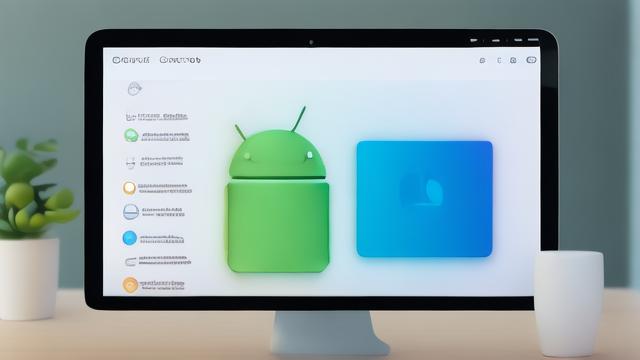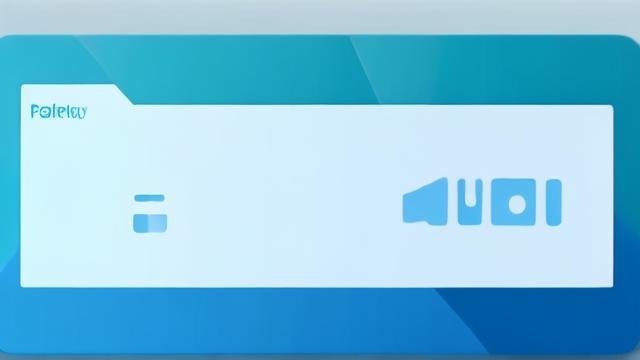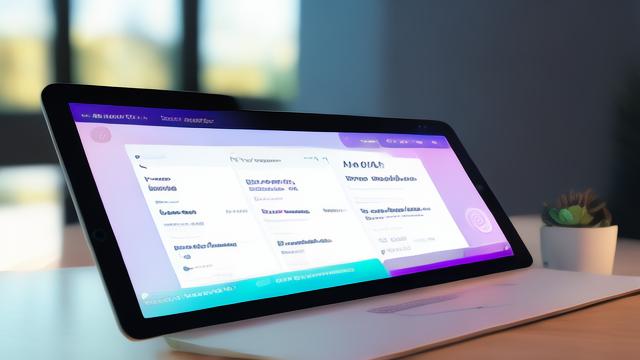Android实现系统的桌面图标文字的双行显示效果

在Android系统中,由于应用名称的长度不一,有时需要在桌面图标上显示多行文字,默认情况下,Launcher空间有限,特别是在横屏模式下,因此一般不建议多行显示,如果一定要实现多行显示,建议竖屏下最多显示两行,而横屏下保持单行显示,本文将详细介绍如何在Android系统中实现这一功能,包括配置文件的修改、样式的调整以及代码的定制。
一、配置文件的修改
1. 竖屏配置
在路径packages\apps\Launcher3\res\values\config.xml中添加或修改以下内容:
<bool name="single_line">false</bool> <integer name="max_lines">2</integer>
上述配置关闭了竖屏下的单行显示,并设置最大显示行数为2行。
2. 横屏配置
在路径packages\apps\Launcher3\res\values-land\config.xml中添加或修改以下内容:
<bool name="single_line">true</bool>
上述配置保持横屏下的单行显示。
二、样式的调整

所有的桌面图标样式通常继承自BaseIcon这个基础样式,要进行双行显示的定制,需要定位到styles.xml文件,并进行必要的修改,以下是具体的步骤:
1. 定位BaseIcon样式
找到路径packages\apps\Launcher3\res\values\styles.xml,找到与图标相关的样式定义。
2. 修改BaseIcon样式
在BaseIcon样式中添加或修改以下属性:
<style name="BaseIcon" parent="@android:style/TextAppearance.DeviceDefault">
<item name="android:layout_width">match_parent</item>
<item name="android:layout_height">match_parent</item>
<item name="android:layout_gravity">center</item>
<item name="android:focusable">true</item>
<item name="android:gravity">center_horizontal</item>
<item name="android:lines">2</item>
<item name="android:textColor">?android:attr/textColorSecondary</item>
</style>通过上述修改,可以实现竖屏下图标名称双行显示,横屏下单行显示的效果。
三、代码的定制
为了实现双行显示效果,还需要对应用样式进行进一步定制,这可能涉及到调整文字的大小、颜色以及文字的排版方式,以适应双行显示的要求,以下是一些常见的定制方法:

1. 调整字体大小和行间距
可以通过修改dimens.xml文件中的相关属性来调整字体大小和行间距。
<dimen name="text_size_small">12sp</dimen> <dimen name="line_spacing_extra_small">4dp</dimen>
然后在样式中使用这些属性:
<style name="BaseIcon" parent="@android:style/TextAppearance.DeviceDefault">
<item name="android:layout_width">match_parent</item>
<item name="android:layout_height">match_parent</item>
<item name="android:layout_gravity">center</item>
<item name="android:focusable">true</item>
<item name="android:gravity">center_horizontal</item>
<item name="android:textSize">@dimen/text_size_small</item>
<item name="android:lineSpacingExtra">@dimen/line_spacing_extra_small</item>
<item name="android:lines">2</item>
<item name="android:textColor">?android:attr/textColorSecondary</item>
</style>2. 调整图标和文字之间的间距
可以通过修改布局文件中的padding属性来调整图标和文字之间的间距。
<LinearLayout
android:layout_width="wrap_content"
android:layout_height="wrap_content"
android:orientation="vertical"
android:paddingTop="4dp"
android:paddingBottom="4dp">
<ImageView
android:id="@+id/icon"
android:layout_width="wrap_content"
android:layout_height="wrap_content" />
<TextView
android:id="@+id/label"
android:layout_width="wrap_content"
android:layout_height="wrap_content"
android:text="Application Name" />
</LinearLayout>通过上述修改,可以更好地适应双行显示的要求。
四、注意事项
1、权限问题:修改Launcher应用通常需要有足够的权限,有时可能需要获取root权限或使用特定的开发调试工具,进行这些修改之前,开发者应当具备一定的Android开发经验,并了解相关风险。
2、设备兼容性:由于Android系统的Launcher应用可能有很多种不同的实现,具体实现双行显示的方法可能会根据不同的Launcher应用有所差异,在实际操作过程中,开发者可能需要根据实际使用的Launcher应用进行具体问题的分析和解决方案的探索。
3、用户体验:在进行界面定制时,还需要注意整体的界面美观和用户体验,确保修改后的界面既美观又实用。
实现Android系统桌面图标文字的双行显示效果,需要通过修改配置文件、调整样式以及定制代码来完成,具体步骤包括在配置文件中设置竖屏和横屏下的显示行数,在样式文件中修改BaseIcon样式以支持双行显示,并根据需要调整字体大小、行间距和图标文字之间的间距,还需要注意权限问题、设备兼容性和用户体验等方面的问题,只有在综合考虑以上因素后,才能实现既美观又实用的双行显示效果。
以上内容就是解答有关“Android实现系统的桌面图标文字的双行显示效果”的详细内容了,我相信这篇文章可以为您解决一些疑惑,有任何问题欢迎留言反馈,谢谢阅读。